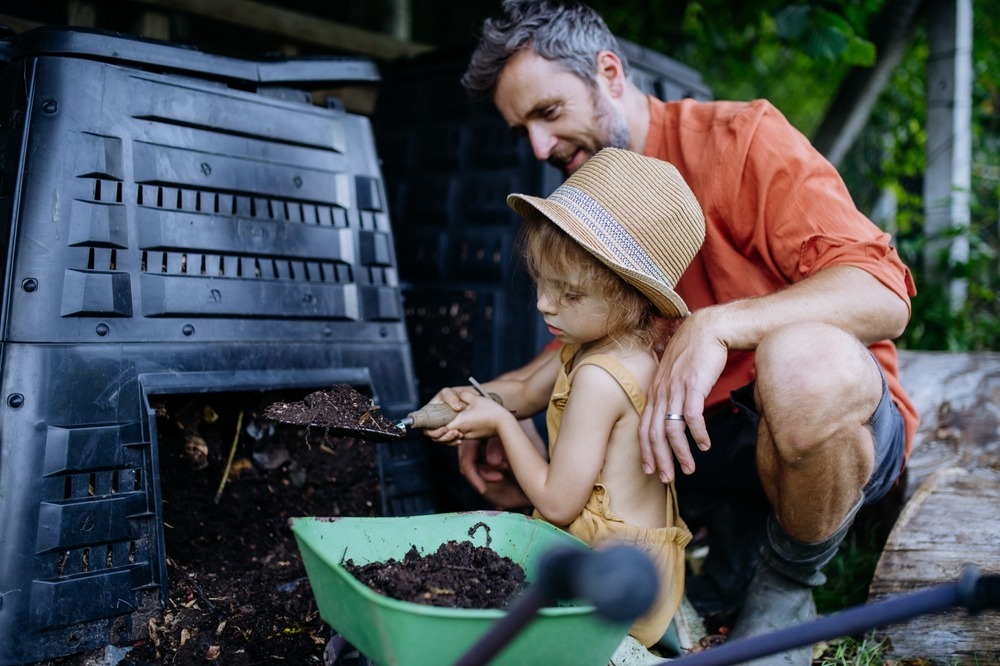
Sustainability
Sustainability
07 June, 2026

Composting is a great way to help kids feel connected to nature and learn about how everything is interconnected. It’s an activity the whole family can get involved in together and it has so many benefits.
What is composting?
Composting is simply collecting kitchen food scraps and helping them to break down into rich organic fertiliser that can be added to the garden to help plants grow.
Why should kids try composting?
There are so many reasons why composting is a great experience for kids and a worthwhile activity for families:
What’s the key to making compost work?
Composting is a bit like cooking – you’ve got to have the right ingredients to make it work. While all food scraps will eventually break down, it’s easiest to just stick to fruit and veggie scraps and avoid meat and dairy that can be smelly and attract pests.
It’s essential to make sure the mix is not too wet or dry. When you add food scraps to your compost, be sure to top it with dry material such as shredded cardboard (egg cartons are perfect), paper, dry leaves or even human or pet hair.
How to get started composting?
There are lots of different ways to compost and how much space you have will influence what works best for your family. If you have plenty of room, you might choose to keep it as simple as creating a pile of scraps on the ground, covered with dry material, although this method can attract insects and critters.
Hardware stores have a whole range of compost turning barrels and bins, including in-ground bins that use worms to help break down food scraps more quickly. If you live in an apartment, there are even small compost bins designed to be kept on your kitchen counter. These work best with a purchased additive to help the contents break down.
Many local councils offer rebates to encourage families to take up composting, so it’s worth checking with yours. You may also like to consider making your own worm farm. We’ve got worm farms at many of our Edge Early Learning centres and the kids love them!